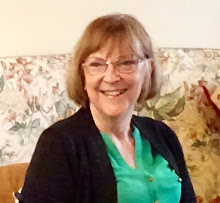The course is now at an end. I don't think I am alone in wondering where the past four weeks has gone to. In one sense, it would make sense if the course were longer. Reflection takes time and learning about reflection even longer, so four weeks hardly feels sufficient. On the other hand, I know from experience that the longer an online course, the more difficult it is to sustain any sense of momentum and motivation. I think if this course were longer it would have to be for a more substantial form of accredition. As it is, I think it is probably about the right length.
However, we have had a significant drop in the number of people participating in this last week. Weeks 2 and 3 of the course are demanding in terms of time, but also in the nature of what is being discussed and learned, so perhaps a slower Week 4 is unsurprising.
I am also reminded again of something a colleague once said to me when I told him I was worried by the small numbers who had attended a programme meeting. He told me not to worry, because in all likelihood 'the right people were at the table'.
I have been struck by the fact that although only a small number of participants have posted in Week 4, their posts have been thoughtful, reflective and interesting and they have enjoyed the course - which is great. I think 'the right people have been at the table' at all stages of the course!
Source of image: http://www.gutenberg.org/files/23290/23290-h/images/004.jpg










